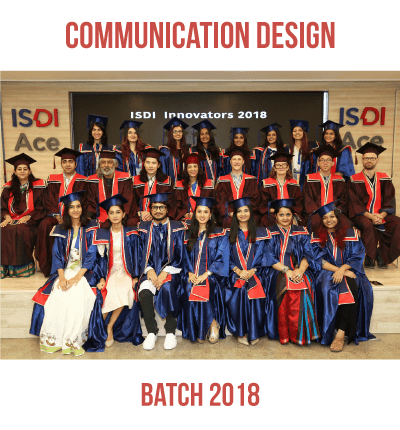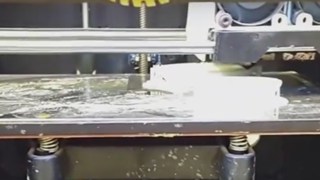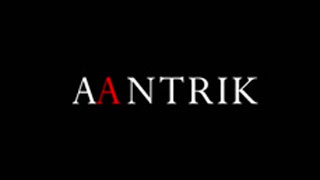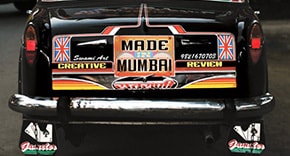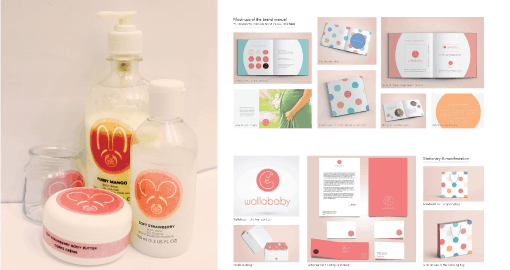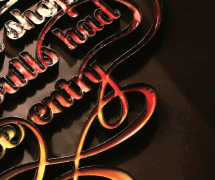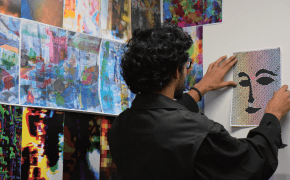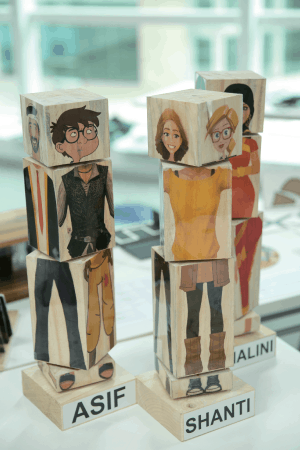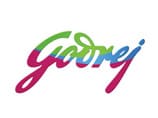Communication Design Course
ABOUT
One of the keys to effective communication with your audience is design. Good communication design allows you to cut through the media clutter and talk persuasively with your readers and viewers. At ISDI, we help you explore communication design in all its aspects — colour theory, interactive design, photography, typography, graphic design, print design and a whole lot more. Communication Design, 4-year undergraduate course, helps students better understand audiences and use a variety of innovative techniques to reach out to them. Our programme enables you to achieve the creative transition between words and pictures to telling compelling stories through multiple media. At ISDI, we prepare students of Communication Design for creative and challenging careers in communication planning and designing — advertising, motion and broadcast graphics, corporate branding, book and magazine design, interactive design, exhibition and retail design and apparel design.
Area of Focus
- Semiology and brand identity
- Typography for print, interactive media and motion graphics
- Drawing, illustration and graphic languages
- User experience and user interface
- Way finding and Sign Systems
- Film making, visual effects and animation
Curriculum
- Core Studio: Interaction - 4 Credits
A project-driven studio to introduce the basic vocabularies, concepts, practices and contexts of interaction design as an essential component of the discipline. Students continue to evolve their understanding of design process and presentation as well as develop their own work across a variety of projects. Students will produce projects with increasing complexity, focusing on historic precedents, information architecture, media integration and future developments. Emphasis is on a critical awareness of new technologies, an articulated design process, creative engagement with the medium and principles of user experience. Students will be working both collaboratively and iteratively with a variety of assigned projects, culminating in a more research-driven final.
- Core Lab: Interaction - 2 Credits
A hands-on support lab to introduce the basic technologies concepts, practices and workflows of interaction design as an essential component of the discipline. Structured to complement and assist the projects of the Core Studio, students evolve their understanding of production and troubleshooting and develop their own skills within contemporary and professional standards. Students will learn processes and techniques for website and interactive design, media integration and problem solving. Students will be working both collaboratively and iteratively with a variety of assigned projects.
- Lecture Electives - 3 Credits
Students should explore their elective options with their advisors to create a coherent study plan.
- Liberal Arts Electives - 3 Credits
Students should explore their elective options with their advisors to create a coherent study plan.
- Studio Electives - 3 Credits
Students should explore their elective options with their advisors to create a coherent study plan.
- Core Studio: Interaction - 4 Credits
A project-driven studio to introduce the basic vocabularies, concepts, practices and contexts of interaction design as an essential component of the discipline. Students continue to evolve their understanding of design process and presentation as well as develop their own work across a variety of projects. Students will produce projects with increasing complexity, focusing on historic precedents, information architecture, media integration and future developments. Emphasis is on a critical awareness of new technologies, an articulated design process, creative engagement with the medium and principles of user experience. Students will be working both collaboratively and iteratively along a variety of assigned projects, culminating in a more research-driven final.
- Core Lab: Interaction - 2 Credits
hands-on support lab to introduce the basic technologies concepts, practices and workflows of interaction design as an essential component of the discipline. Structured to complement and assist the projects of the Core Studio, students evolve their understanding of production and troubleshooting and develop their own skills within contemporary and professional standards. Students will learn processes and techniques for website and interactive design, media integration and problem solving. Students will be working both collaboratively and iteratively along a variety of assigned projects.
- Lecture Electives - 3 Credits
Students should explore their elective options with their advisors to create a coherent study plan.
- Liberal Arts Electives - 3
CreditsStudents should explore their elective options with their advisors to create a coherent study plan.
- Studio Electives - 3 Credits
Students should explore their elective options with their advisors to create a coherent study plan.
- Topics Studio - 6 Credits
Advanced studio for students particularly interested in developing more complex projects with a specific domain of media design. Emphasis is on critical thinking, iterative design methodologies and synthesis of research, design production and presentation. Students will complement historic and theoretical readings with their own research, and will develop a larger independent project of their own areas of interest.
- Lecture Electives - 3 Credits
Students should explore their elective options with their advisors to create a coherent study plan.
- Liberal Arts Electives - 3 Credits
Students should explore their elective options with their advisors to create a coherent study plan.
- Studio Electives - 3 Credits
Students should explore their elective options with their advisors to create a coherent study plan.
- Collaborative Studio - 3 Credits
Project-driven studio that emphasizes collaboration between team members working on an external problem. Ideation, prototyping, collaboration, and iteration are practiced within a variety of contexts that are chosen each year, some generated from within and some in partnership with an external company, institution, or nonprofit.
- Introduction to Design Studies - 3 Credits
This class examines different aspects of design and visuality by looking at larger questions of production, consumption, and use and how these issues become part of a larger discourse about design and visual culture. The design process is intricately tied to visuality, or how things appear and look; thus, the course uses images to provide students with a better understanding of their chosen field of study at ISDI. In this class, students will assess the relationship between design and the visual by investigating questions about gender, spatial control, ethics, race, status, and class; and will look at a variety of theoretical, historical, social, and political writings to explore this complicated topic.
- Studio Electives - 9 Credits
Students should explore their elective options with their advisors to create a coherent study plan.
- Thesis 1 - 6 Credits
This two-course sequence is a year-long self-driven investigation into the research, prototyping and design of an identified problem, providing an opportunity for design innovation following an appropriate methodology, and building the project in different ways and on various trajectories. The goal of the first semester is to research, develop and articulate the thesis problem and goals towards the deliverables of an initial prototype, including designed presentations of research and process from the entire semester. The thesis requires a finished project or proposal along with a written component to communicate the public presentation of the work.
- Pre-Capstone - 3 Credits
Students will choose from of a range of courses designed to prepare them for their capstone experience. These will stress a reciprocal relationship between independent work and class time, practice and theory, which will enable them to reflect critically on art, design and visual practices as they relate to issues of sustainability, politics, and social justice. This is an upper-level methodology, research, and writing class that continues to refine the skills and thought processes students have acquired as they progress through ISDI: presentation skills, writing skills, self and peer reflection and assessment skills, executive skills, research skills and systems thinking.
- Liberal Arts Electives - 3 Credits
Students should explore their elective options with their advisors to create a coherent study plan.
- Studio Electives - 3 Credits
Students should explore their elective options with their advisors to create a coherent study plan.
- Thesis 2 - 6 Credits
This two-course sequence is a year-long self-driven investigation into the research, prototyping and design of an identified problem, providing an opportunity for design innovation following an appropriate methodology, and building the project in different ways and on various trajectories. The goal of the first semester is to research, develop and articulate the thesis problem and goals towards the deliverables of an initial prototype, including designed presentations of research and process from the entire semester. The thesis requires a finished project or proposal along with a written component to communicate the public presentation of the work.
- Liberal Arts Electives - 3 Credits
Students should explore their elective options with their advisors to create a coherent study plan.
- Studio Electives - 3 Credits
Students should explore their elective options with their advisors to create a coherent study plan.
Culture & Place
Being at the centre of a host of activities is the perfect playing field for young minds to grow. At ISDI, we offer the perfect ground for our students to taste the pulse of Mumbai. Ideally located, ISDI gives you close proximity to India’s top advertising agencies to try your hand at. At the heart of the cultural capital of the country, ISDI will also give you access to some of the most celebrated cultural events of the year. Adding glamour to the quotient is India’s biggest entertainment industry, which will give you a healthy dose of the Bollywood buzz. So come, visit our campus, and find out first hand what you stand to gain from the ISDI experience.
TOP ^eligibility
Candidates who have appeared for a 10 + 2 examination (e.g. A levels, CBSE, HSC, IBDP, ISC etc), or its educational equivalent in any discipline (e.g: Science, Commerce, Arts) with an interest in Design & Innovation. Although successful completion of the 10 + 2 examination is necessary to confirm the admission, our institution does accept predicted or preliminary grade indications until final results are declared. The upper age limit for undergraduate program is 21 years.
TOP ^Admission Process
Your application helps us to learn about you. Please complete all the required fields of the application form with your details. The applicant will receive a confirmation email with the application number after successful submission of the online form.
+ Step 2 - Pay the Application Fee
On submission of the application form, the screen will be directed to Online payment gateway to complete the application fee** payment of INR 3,500.00. Alternatively, you may also send us a Demand Draft in favour of “Innovation Trust” payable at Mumbai. ** Application fee is non-refundable. To check your application status, make the payment & upload the documents, Click here
+ Step 3 -Pre ISDI Challenge Documentation
On Successful payment of Application Fee, Its time to upload your documents. Please note, these photographs must be in JPG/JPEG format and not exceeding 2 MB in size.
- Declaration Form: You are requested to download the Declaration form & fill in the required information. Please upload a scanned copy of the same.
- Photograph: Upload a scanned recent passport photograph. It must be a coloured photograph taken at a professional studio. Photographs taken via mobile phone and other kinds of self-composed portraits will not be accepted.
- 10th Mark-sheet: Upload a scanned copy of your 10th Mark-sheet. It must be self-attested by the student/parents.
- ID Proof : Photo ID proof can be your Aadhar Card or Pan Card or Passport.
- PAN Card : Upload a scanned copy of your PAN card. If a student doesn’t own a pan card, request to upload anyone parents Pan Card.
- The ISDI Challenge comprises of a Creative Aptitude Test, Studio Test culminating into Personal Interview with Portfolio Review, all of which happens on the same day.
- This allows the Admission Committee to evaluate how a prospective student develops & translates ideas into design and 2D / 3D forms, communicates and articulates the work in writing.
- You will be assessed for your design skills as well as the articulation of your ideas, concepts and visual expression; since in future, both as an ISDI student and practicing professional you will require to use them extensively.
+ Step 5 - Portfolio Guidelines
-
Your portfolio represent your core skills and creative preferences. It is unique to your personality and indicates to the Admissions Committee your level of readiness to hone your creative skills further.
-
The portfolio should include a selection of your work including hand skills such as sketching and rendering, photography, collages, 3D work as well as digital compositions.
-
Digitally generated designs must carry a short description of the process and the software through which is it created.
-
Presentation is most important. Here again is an opportunity to showcase and verbally present your ideas during the Personal Interview.
+ Step 6 - Announcement of Results
-
Our team is privileged to evaluate your ISDI Challenge paper and review your portfolio.
-
The results will be communicated to you after approval of the ISDI Admissions Committee by email.
+ Step 7 - Enrollment into the program
- On receipt of confirmation of successfully clearing the ISDI Challenge, a candidate is required to make a payment of Rs. 78,100/- comprising of Registration & Admission Fee of 45,000 + 18% GST (as applicable) and Security Deposit of Rs. 25,000 are payable within the date given in the result announcement.
- Registration & Admissions Fee is a one time fee, payable in the first year only and is non-refundable.
- The interest free Security Deposit will be refunded on completion of the program. There will be deductions from the Security Deposit , if there are any dues during the program.
- In case of withdrawal of admission, candidate needs to provide an official application of withdrawal.
* All refunds will be considered and governed by ISDI Fee Refund & Guideline Policy




